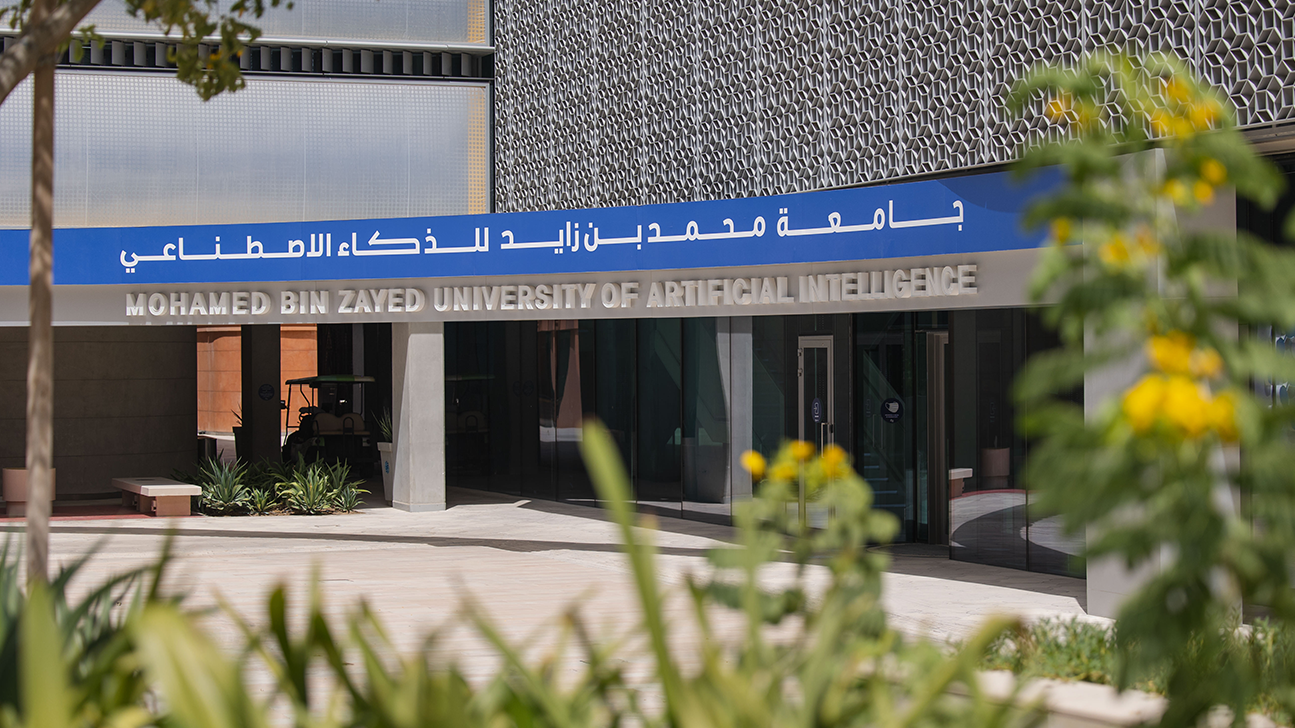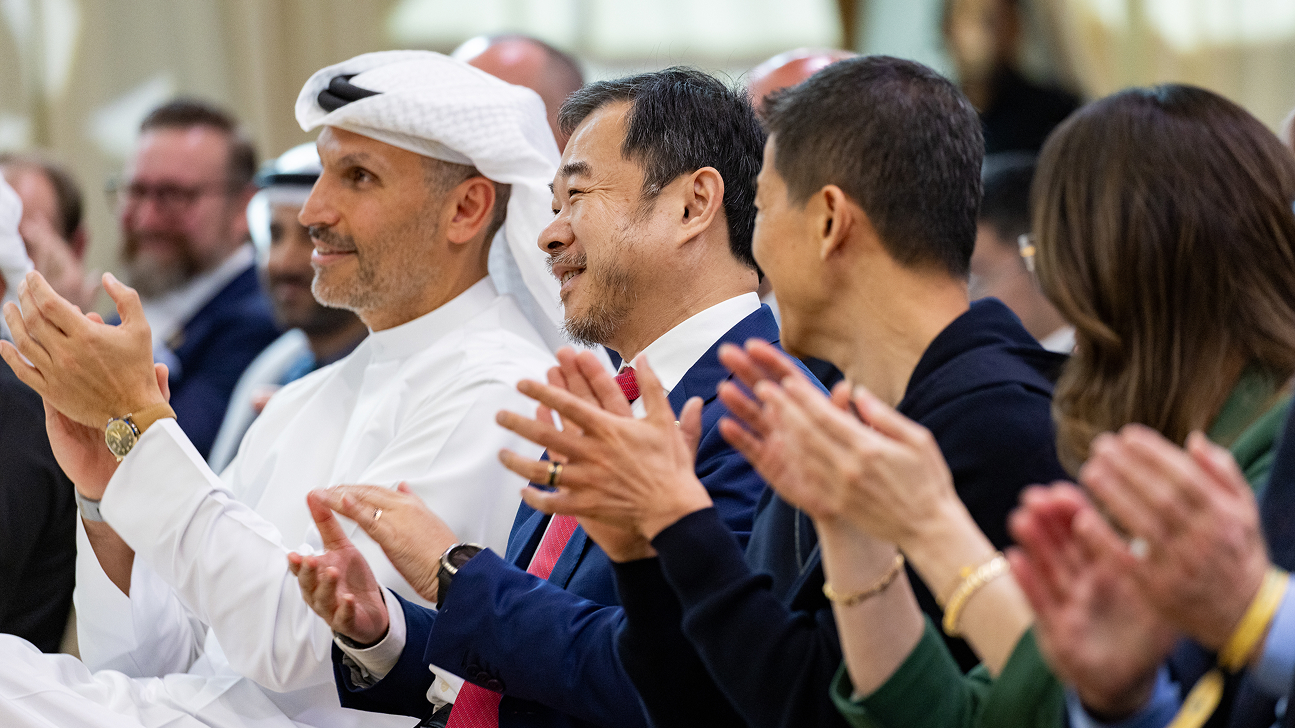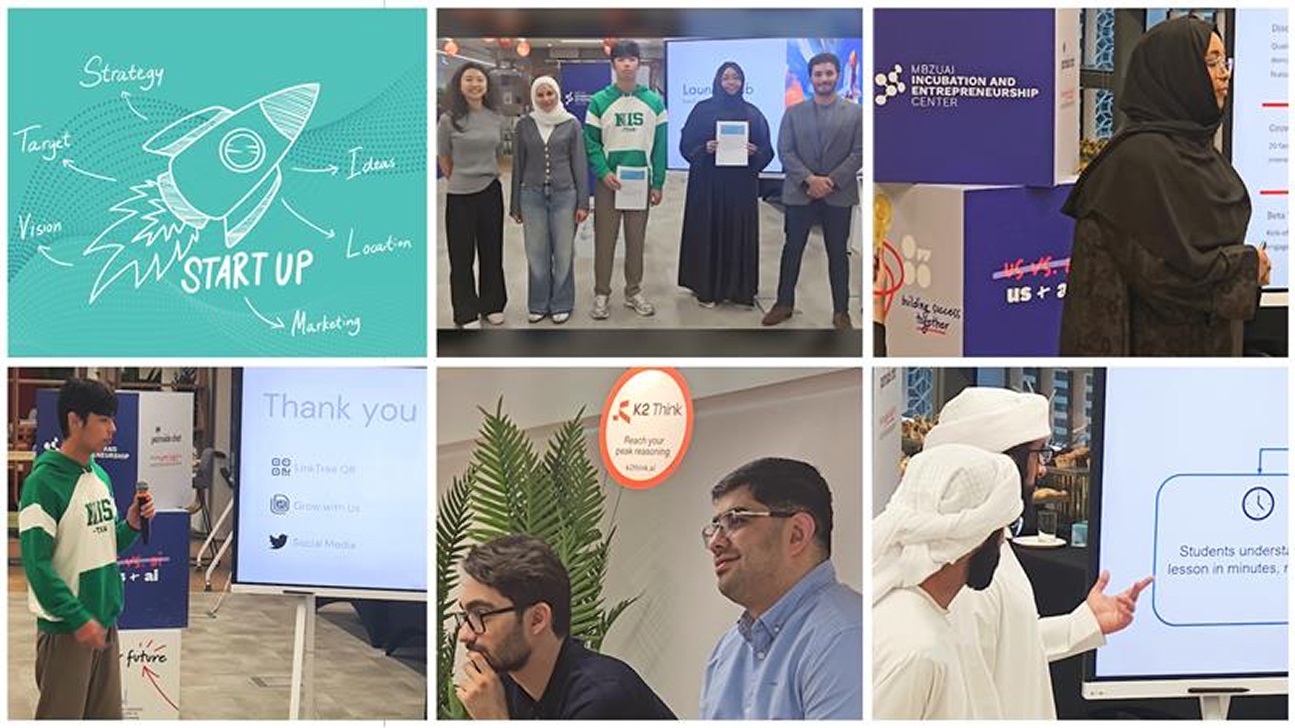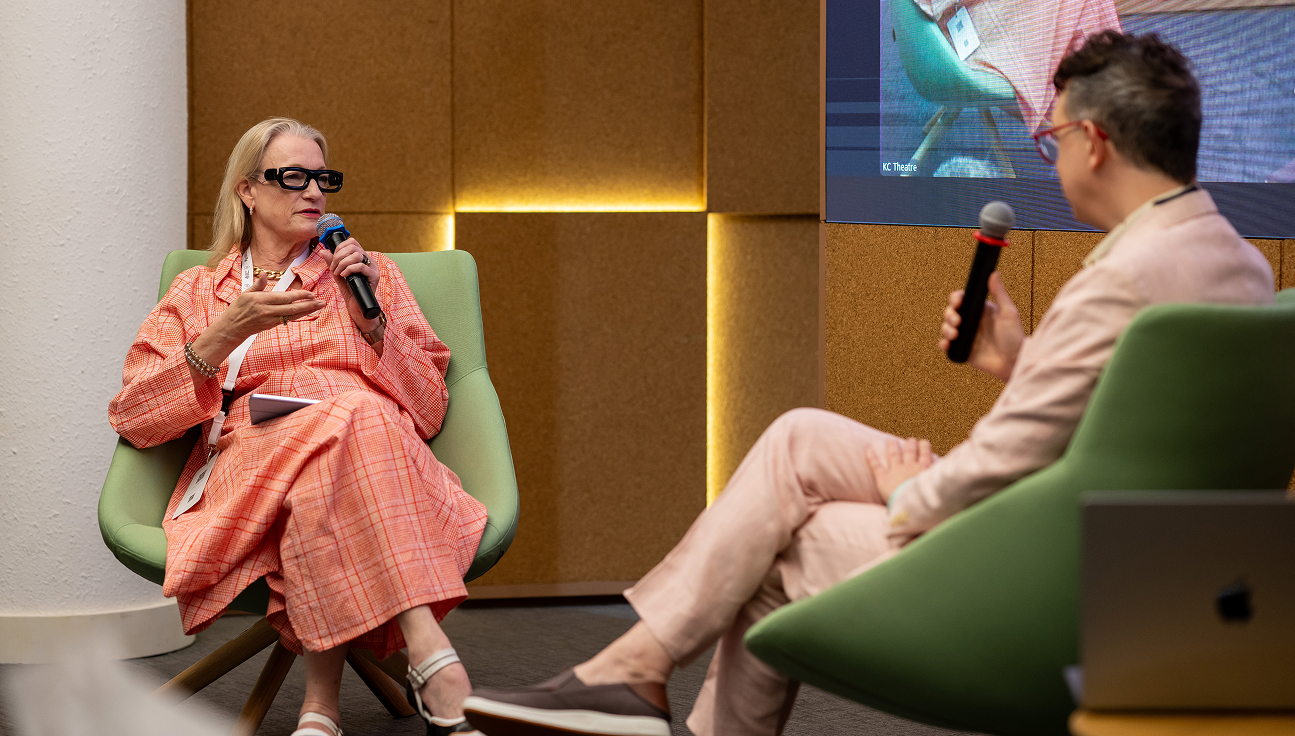Making MBZUAI the “Stanford of the Middle East”
Tuesday, January 21, 2025

MBZUAI President and University Professor Eric Xing said he wants MBZUAI to become the “Stanford of the Middle East” as he addressed faculty, students and staff at the University’s New Year, New Journey event.
Speaking at the MBZUAI’s campus in Masdar City, Abu Dhabi, Xing looked back at the University’s success over the past year and outlined plans for its next phase of its growth.
“I want MBZUAI to be the Stanford of the Middle East,” he said, referring to the world-renowned university in the United States of America that is currently the second ranked university in the world, according to the Times Higher Education World University Rankings.
“Why Stanford? Because it’s not just a university. It is the epicentre of everything. It is the epicentre of innovation, of the economy, of education and science for the country and for the entire region. We need such an engine to spearhead the modernization of science and infrastructure – not only hardware infrastructure, but also software infrastructure, and even mindset infrastructure. So that we can think big and think new, and create not just one or two companies, or one or two universities, but an entire ecosystem in this region.
“We want MBZUAI to be at the center of that movement, and create an AI district that would become the bedrock of the next level of advancement of the UAE’s and MENA’s economy and global impact.”
To help reach this goal, Xing announced plans to expand the University’s program offerings – including those at executive and leadership level – while strengthening its position as a global leader in technology and AI.
“We want new educational experiences for our students and teachers to aggressively explore new technologies that will create synergistic experiences of people, systems and computing,” he said. “We also want to go beyond just doing education, knowledge discovery, innovation and entrepreneurship to become a thought leader in the global space; to create an intellectual ecosystem and maybe governance ecosystem that can have an even greater impact.
“We also want to maintain and strengthen our position as a global tech leader, and we are focusing right now on some remarkable, one-of-a-kind opportunities, such as in the space of generative AI and foundation models, AI for sustainability, and medicine and biology.”
Building on a year of success
MBZUAI’s next phase will build on an incredibly successful 2024, which saw the University launch new departments and courses, release a record number of research papers, and form numerous industry partnerships.
The MBZUAI community grew, with 16 new faculty joining in 2024, taking the total to 84, and some 209 students joining in the same year to take the total number to 365, representing 49 countries. Almost 31% of students are women, and 20% of them Emirati.
“The faculty that we were able to bring in to work with us are all respected globally and highly sought after,” said Xing. “We were lucky to be able to convince them to join us at MBZUAI to continue and extend our legacy. Our students are equally, if not more, impressive, as are our alumni who are carrying our legacy, our name, and having a huge impact in the country we live in.”
To date, 213 students have graduated from Master’s and Ph.D. programs in Computer Vision, Machine Learning and Natural Language Processing (NLP). Two new programs were introduced in 2024 – Computer Science and Robotics – with a new Master’s in Applied AI also announced late in the year, aimed at delivering AI skills to industry.
Executive education offerings also grew in 2024, with the launch of the MBZUAI Executive Program — Accelerated (MEP-A): a tailored version of the popular MBZUAI Executive Program (MEP). MEP-A saw 32 executives from regional and global graduate from its intensive six-day program, while MEP’s Cohort 5 saw 37 executives graduate, bringing the total number of MEP alumni to 203.
“We have contributed very actively to community and AI awareness and upscaling by training people at diverse levels of corporate and government,” said Xing. “Everybody who has been trained at our campus returns their knowledge and skill back to the community and serve in their respective positions.”
MBZUAI also continued to be a hub of research excellence during 2024, producing 456 research papers for journals and conferences across the year, while the work of faculty and students was recognized with numerous awards.
Bilingual healthcare multi-modal model BiMediX2, led by Dr. Hisham Cholakkal, Assistant Professor of CV, won Meta’s inaugural Llama Impact Innovation Awards for its potential to solve healthcare accessibility challenges across the Middle East, Africa, and beyond. An intelligent tutoring system developed by Assistant Professor of NLP Dr. Ekaterina Kochmar’s won a Google Academic Research Award, while a team of professors and researchers led by Professor and Department Chair of NLP, Preslav Nakov, won the Best Resource Paper Award at the European Chapter of the Association for Computational Linguistics (EACL 2024) for their paper “M4: Multi-generator, Multi-domain, and Multi-lingual Black-Box Machine-Generated Text Detection”.
To help continue its success, the University also laid foundations for the next generation of AI researchers, welcoming the largest cohort to date of its Undergraduate Research Internship Program (UGRIP). Forty-five international STEM students were exposed to cutting-edge AI research and world-leading faculty during a month-long internship.
Leadership, partnership, and a global outlook
MBZUAI’s leadership in large language models (LLMs) continued throughout 2024 with the release of NANDA — the world’s most advanced Hindi LLM, developed by the University’s Institute of Foundation Models (IFM) in partnership with Inception and Cerebras Systems. This breakthrough gives more than half a billion Hindi speakers access to generative AI in their mother tongue.
The University also developed Atlas-Chat — a family of LLMs for Moroccan Arabic (Darija) — and launched LLM360: an initiative to fully open-source LLMs, including their training code and data, model checkpoints, and intermediate results. LLM360 collaborated with Petuum to launch the 65-billion parameter open-source LLM, K2-65B. The University also launched five specialized models: BiMediX, PALO, GLaMM (through the IFM), GeoChat, and MobiLLaMA – targeting healthcare, visual reasoning, and mobile applications.
Partnerships also grew throughout the year, notably in healthcare as MBZUAI and Core42 signed a Memorandum of Understanding (MoU) with the Department of Health – Abu Dhabi (DoH) to launch the Global AI Healthcare Academy, aimed at advancing diagnostic efficiency and patient care.
The University also collaborated with Sandooq AlWatan, the United Nations Development Programme (UNDP), the Ministry of Energy and Infrastructure (MOEI), the Khalifa Fund, IIT Delhi, and Région Ile de France and its development agency Choose Paris Region; strengthening its position in the global AI ecosystem.
MBZUAI Incubation and Entrepreneurship Center (IEC), meanwhile, celebrated its first anniversary in November. During that year, the IEC supported nine promising startups, with external funding exceeding internal grants by eight times. Among its ventures are LibrAI for AI safety monitoring, Limb for AI-enhanced physiotherapy, and Audiomatic for AI-driven audio production, demonstrating MBZUAI’s success in transforming research into practical solutions.
As well as going out into the world, MBZUAI welcomed the world to its campus with a series of events, workshops, conferences and delegation visits.
The AI4Bio Workshop gathered more than 30 globally renowned experts at MBZUAI to explore the intersection of AI and biology, while leaders from global education institutions came together for the 2024 Middle East Advancement Conference (MEAC). A high-profile delegation of robotics academics and researchers attended a symposium to discuss ‘Next Big Things in Robotics’ on the sidelines of the International Conference on Intelligent Robots and Systems (IROS 2024), and the IEC’s regular ‘Palmside AI Chat’ series saw leaders from tech companies such as Microsoft, Amazon, Careem, and OpenAI speak to the MBZUAI community.
High-level international delegations were also welcomed to the MBZUAI campus to meet with the University’s leadership, faculty and students and learn more about its future plans, exhibiting once again the global reputation the University has developed in cutting edge AI, education and research.
- executive program ,
- innovation ,
- academic programs ,
- MBZUAI ,
- future ,
- growth ,
- strategy ,
Related
MBZUAI marks five years of pioneering AI excellence with anniversary ceremony and weeklong celebrations
The celebrations were held under the theme “Pioneering Tomorrow: AI, Science and Humanity,” and featured events, lectures,.....
- celebration ,
- five year anniversary ,
- ceremony ,
- event ,
- board of trustees ,
- campus ,
- students ,
- faculty ,
MBZUAI's Launch Lab equips alumni and students with practical startup tools
The six-week pilot program brought alumni and students together to turn early startup ideas into tangible ventures.
- entrepreneurship ,
- alumni ,
- startups ,
- alumni relations ,
- launch lab ,
Designing the human side of AI
MBZUAI’s inaugural HCI Symposium explored how people will live and work alongside AI, and how to ensure.....
Read More

